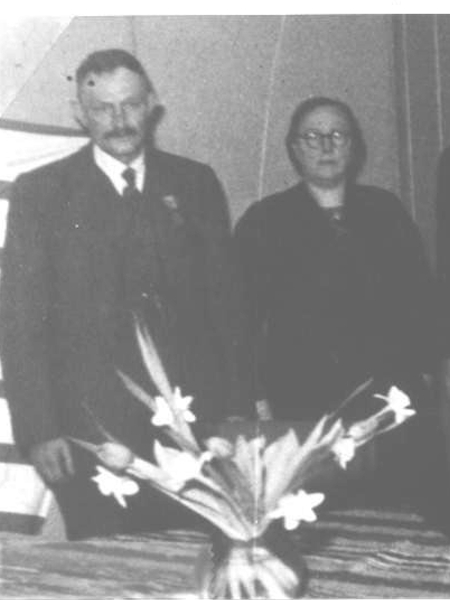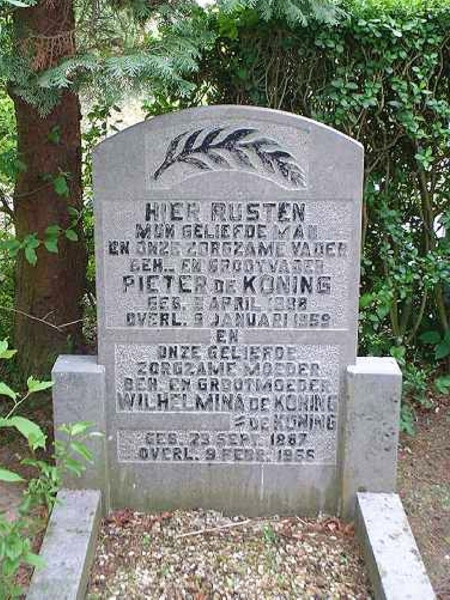Koning, de, Pieter
- Date of birth:
- April 5th, 1888 (Papendrecht, Netherlands)
- Date of death:
- January 14th, 1959 (Papendrecht, Netherlands)
- Nationality:
- Dutch
Biography
Pieter de Koning, pseudonym "Ouwe Piet" from Papendrecht, worked in the cordwood trade and had previously leased a number of cordwood areas in the Biesbosch. So he knew the Biesbosch like the back of his hand. During the occupation, he and his family soon became involved in the resistance. They sheltered Allied pilots and helped other people in hiding, including in the ark they had in the Biesbosch.
During the last Winter of War, the need arose for a regular connection between the occupied and liberated parts of the Netherlands. Thus, several routes through the Biesbosch to Drimmelen and Lage Zwaluwe emerged, especially from Sliedrecht and Werkendam. Apart from the crossers from the well-known "Groep Albrecht", other crossers from Hardinxveld and Papendrecht, among others, were also active. This is how the so-called "Line of De Koning" came into being in Papendrecht. The house of the De Koning family on Oosteind was a central point where people gathered from their hiding addresses to make the crossing to liberated territory. A network of resistance fighters worked on this.
They left from De Koning's house, which was located on the water outside the dike. In a roughly six-hour trip full of dangers, Pieter de Koning and his sons Kees and Flip took countless people from his house in Papendrecht to Lage Zwaluwe in the liberated South using rowing boats and canoes. These were Allied pilots or British soldiers who had escaped after Market Garden, but also couriers and other people who wanted or needed to make the crossing. On the retreat, the boats were filled with medicine, weapons and food.
During their last crossing, there were even 10 rowboats filled with people at the same time, with other boats joining them during the trip. Modest as he was, Pieter de Koning never kept track of how many people they had brought over, but it was probably hundreds.
After the war, Pieter de Koning was awarded the Medal of Freedom and the King's Medal. Today, at the spot on the Oosteind in Papendrecht where his house once stood, a sign has been erected commemorating Pieter de Koning and his "Lijntje van De Koning" and the Pieter de Koninghof in Papendrecht also bears his name.
Near the Moldiep in the Biesbosch, the remains of one of the de Koning family's arks can usually still be found hidden under the vegetation.
Do you have more information about this person? Inform us!
- Period:
- Second World War (1939-1945)
- Awarded on:
- January 18th, 1947
- Period:
- Second World War (1939-1945)
- Awarded on:
- July 8th, 1948
Sources
- Photo: https://blokland.dordtenazoeker.nl/oorlog_05.htm
- - KORPEL, A., De Waard in oorlogstijd 2, De Klaroen, Alblasserdam, 1984.
- WIJNGAARDEN, P. VAN, Papendrecht tijdens de Tweede Wereldoorlog, WW2Books, Papendrecht, 2020.
- Information Sign "Lijntje De Koning".
- Remains Boat.
- British Embassy invitation to King's Medal ceremony.
- https://blokland.dordtenazoeker.nl/oorlog_05.htm





